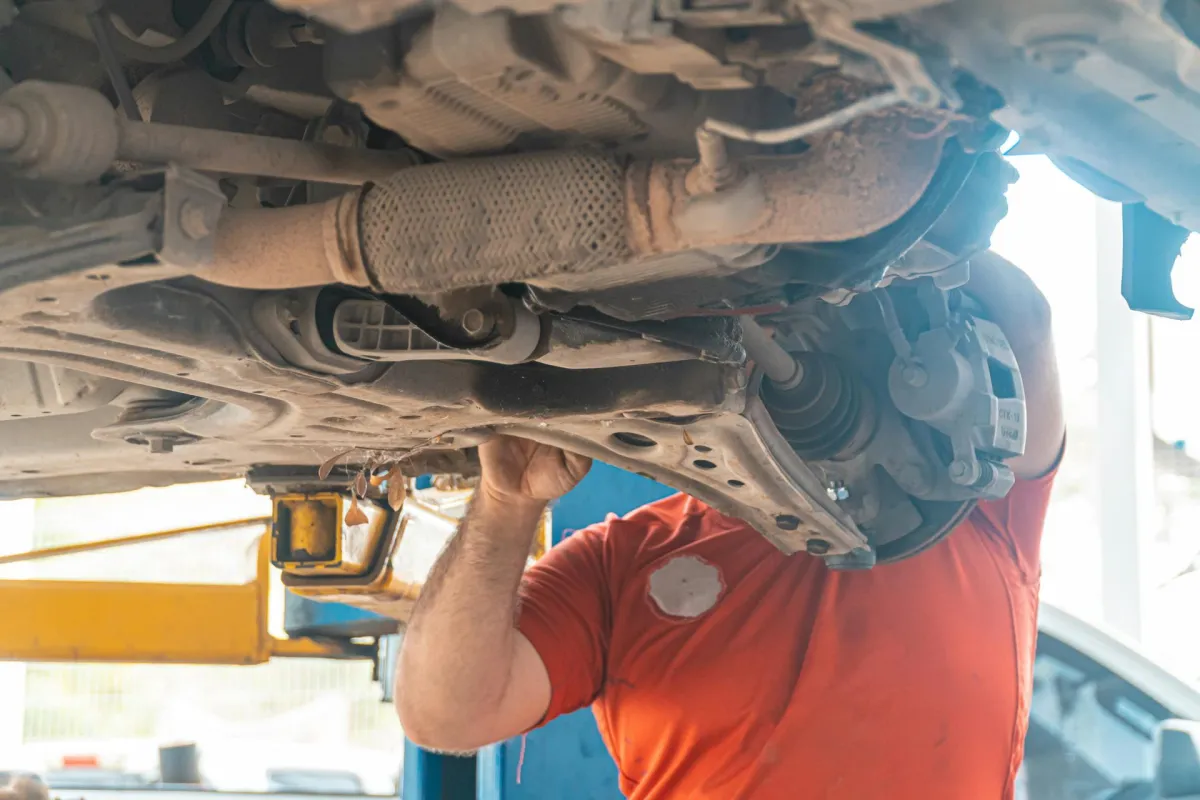
How To Diagnose and Fix Noisy Brakes: A Step-By-Step Guide
Diagnosing and fixing noisy brakes is not just about comfort, it's about safety too. If your brakes start to make noise, it could be a sign that something needs attention. Ignoring it could lead to more serious problems and even put you at risk on the road. Understanding what those sounds mean and how to address them helps you keep your car, and your peace of mind, in good shape.
Brake noise can come from a variety of sources. Knowing what to listen for and how to respond is crucial. A simple squeak might seem minor, but if left unchecked, it could turn into something more severe. By diagnosing the problem early, you can avoid bigger and costlier repairs down the line.
Common Causes of Noisy Brakes
Noisy brakes can stem from several common issues that are important to identify correctly. Here are some key causes to keep in mind:
1. Worn Brake Pads: When the brake pads wear down, they can start to squeal or screech. This noise is often the first hint that it's time to get them checked. If the wear continues, the sound may progress to a grinding noise, signaling that the pads have worn too thin and are now damaging the rotors.
2. Dust and Debris: Dirt, dust, and various road debris can gather in the brake mechanism. This accumulation leads to a gritty noise when braking, indicating the need for a good clean-out.
3. Loose or Damaged Components: Sometimes, parts of the braking system become loose or get damaged. This might result in clunking or rattling sounds. Such noises suggest that something more substantial might need fixing or replacing.
Each of these noises tends to have its distinct character, helping you track down the likely cause. Pay attention to when you hear these sounds; for instance, some might only occur when you apply light pressure, while others could appear as continuous noise. Recognizing these patterns is the first step toward effective repair, ensuring your vehicle is safe and sound.
Step-By-Step Diagnosis of Noisy Brakes
Identifying the exact issue with your noisy brakes can sometimes be done with a few straightforward steps. First, perform a visual inspection of the brake components. Look out for any visible signs of wear or damage. The brake pads should maintain a certain thickness; if they look thin, they might need replacing. Check for any rust or dirt accumulation around the brake area.
Next, test the brakes while driving. Listen carefully to the sounds your car makes when you apply the brakes. You'll want to do this on a quiet road where you can focus on the noises. Pay attention to whether the sound happens when you press lightly or if it occurs with heavier pressure.
Also, listen for specific noises. Different sounds can indicate different issues. For instance, a high-pitched squeal usually points to worn brake pads, while a grinding sound typically means the pads are so worn that they're damaging the rotors.
Lastly, check for wear and tear on all related components, not just the brake pads. Look at the rotors, calipers, and other hardware. Often, the noise could stem from minor parts wearing out and causing a rattle or clank. Knowing how to tell minor issues apart from those that might be more serious helps you make a decision on when to consult a professional.
How To Fix Common Brake Noises
Once you've identified the problem, addressing it promptly is key to preventing further damage and ensuring safety. Here are some common fixes:
- Worn Brake Pads: Replace them as soon as possible. Continuing to use worn pads can lead to damage to other parts of the braking system.
- Debris and Dust: Clean the brake area thoroughly. Removing accumulated dirt can eliminate gritty noises.
- Loose Components: Tighten any parts that might have come loose, like the caliper bolts. If tightening doesn't resolve the issue, replacing the part might be necessary.
- Brake Rotors: If worn or damaged, rotors need replacing. Driving with compromised rotors can be extremely dangerous, so address this immediately.
It's crucial to value professional repair services. While diagnosing and understanding the problem is useful, a professional can provide a more comprehensive fix and ensure everything is done safely. The experience and tools they bring are invaluable for maintaining your vehicle's safety.
Preventative Measures
Preventing noisy brakes starts with regular maintenance. Establish a routine for checking your brakes, ensuring they remain in good condition and noise-free. Here’s a simple maintenance checklist:
- Inspect brake pads regularly, ideally every six months, or more frequently if you drive a lot.
- Keep the brake components clean to prevent dirt buildup.
- Have a professional inspect your brakes during regular servicing to catch potential problems early.
- Don’t ignore early signs of brake noise. Addressing issues quickly can prevent more serious damage.
By integrating these tips into your car care routine, you can enjoy a smoother and safer journey. Regular checks can save time and money by pre-empting bigger issues, keeping your vehicle running like a dream.
If you're ready to address any issues with your brakes and ensure your car remains safe on the road, Langlands Road Garage in Glasgow offers expert solutions. Our experienced team is here to keep your vehicle in top condition. Visit our car brakes repair service page to learn more about how we can assist you.